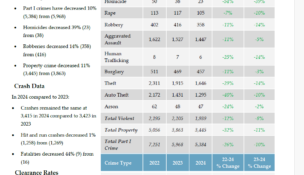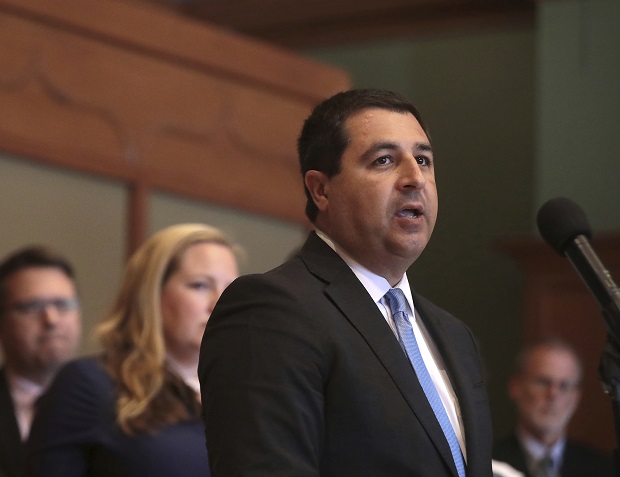SORNA held constitutional
By: dmc-admin//July 12, 2010//
A sex offender need not know that he is required to register as such after traveling in interstate commerce to violate the federal Sex Offender Registration and Notification Act (SORNA).
On July 1, the Seventh Circuit held that the statute imposes strict criminal liability for failure to register. It further held that the law is within Congress’ power under the Commerce Clause.
Isaac Vasquez was convicted of a sex offense in Illinois state court in 1998, and was thus required to register as a sex offender under Illinois law within the State of Illinois.
In 2006, Congress enacted SORNA, which requires that a sex offender who travels in interstate commerce to register within three business days.
In 2007, Vasquez traveled from Illinois to California without registering, and was charged for not doing so. He was convicted in federal court in Illinois under stipulated facts, and he appealed.
In an opinion by Judge William J. Bauer, and joined by Judge John D. Tinder, the Seventh Circuit affirmed, with Judge Daniel Manion dissenting.
The majority first held that the government need not prove that a defendant knew SORNA required him to register.
The court explained, “SORNA merely requires that a defendant have knowledge that he was required by law to register as a sex offender. The government need not prove that, in addition to being required to register under state law, a defendant must also know that registration is mandated by a federal statute.”
The court analogized the statute to 18 U.S.C. 2423(a), which only requires proof that the defendant knowingly transported a person who has not attained the age of 18 years for purposes of prostitution, without requiring proof that the defendant knew the victim was under 18.
Because it was undisputed that Vasquez knew he was required to register under Illinois law, the court held the evidence was sufficient to support the conviction.
Commerce Clause
The court next held that the statute was within Congress’ Commerce Clause powers.
Included in the three categories of activity that Congress may regulate are: the use of the channels of interstate commerce; and persons or things in interstate commerce.
Because a defendant must necessarily use channels of interstate commerce to travel in interstate commerce, the court held the statute fit within both categories.
The court rejected Vasquez’ argument that a nexus is required between the travel and failing to register, relying on Scarborough v. U.S., 431 U.S. 563 (1977). In Scarborough, the Supreme Court held that the interstate transportation of a firearm need not be contemporaneous with a felon’s possession of it to violate the felon in possession statute.
Dissent
Judge Manion dissented from the majority’s analysis of both issues.
On the issue of knowledge, Manion relied on dicta in Carr v. U.S., — S.Ct. — (June 1, 2010), that SORNA should only apply when there is a connection between the interstate movement and the failure to register.
Addressing the Commerce Clause issue, Manion cited U.S. v. Mortensen, 322 U.S. 369 (1944), which held that, to fall within Congress’ Commerce Clause power, the interstate transportation must facilitate illegal activity.
Manion also dismissed the majority’s analogy to transporting a minor in interstate commerce to become a prostitute, because of the strict liability that has historically attached to sexual acts with minors.
But failure to register, Manion maintained, is not inherently unlawful; accordingly, proof of specific intent should be required.
Case analysis
Notwithstanding the majority opinion, defense attorneys should continue to raise the objections made in this case.
In holding that the government need not prove the defendant knew he was required to register, the court cites four other circuit courts of appeal for persuasive authority.
However, all predate the U.S. Supreme Court opinion in Carr, decided just last month. The majority fails to even address dicta in Carr that supports Vasquez’ position.
Should even one circuit find that dicta convincing, a circuit split would arise, and a solid basis for review in the Supreme Court would exist.
Judge Manion’s dissent also provides an excellent blueprint for any Commerce Clause argument.
Of course, it is an uphill battle to argue that any statute exceeds Congress’ Commerce Clause powers, but the dissent provides ample argument to at least preserve the issue.
Legal News
- Steven Avery prosecutor Ken Kratz admits ‘mistakes were made’
- Colombian national extradited to Milwaukee faces International narcotics-trafficking conspiracy charge
- MPD: Milwaukee homicides down nearly 40 percent compared to last year
- EVERS: Republican lawmakers No-Show at special meeting to release statewide PFAS funding, stabilize healthcare access
- Wisconsin ICAC Task Force conference on Missing and Exploited Children highlights increase in sextortion cases
- More than 300 Wisconsin officers back in law enforcement after being fired or forced out
- Former Trump staffer who said to ‘fan the flame’ after 2020 loss hired to lead Wisconsin GOP
- Gov. Evers appoints David Casey to Serve as DOR Secretary
- Former Marine sentenced for Molotov Cocktail attack against Planned Parenthood Clinic
- ABA names 34th Annual Margaret Brent Women Lawyers of Achievement Awards honorees
- FBI launches criminal investigation into Key Bridge collapse
- Man charged in slaying after woman’s leg found at Milwaukee-area park
WLJ People
- Power 30 Personal Injury Attorneys – Russell Nicolet
- Power 30 Personal Injury Attorneys – Benjamin Nicolet
- Power 30 Personal Injury Attorneys – Dustin T. Woehl
- Power 30 Personal Injury Attorneys – Katherine Metzger
- Power 30 Personal Injury Attorneys – Joseph Ryan
- Power 30 Personal Injury Attorneys – James M. Ryan
- Power 30 Personal Injury Attorneys – Dana Wachs
- Power 30 Personal Injury Attorneys – Mark L. Thomsen
- Power 30 Personal Injury Attorneys – Matthew Lein
- Power 30 Personal Injury Attorneys – Jeffrey A. Pitman
- Power 30 Personal Injury Attorneys – William Pemberton
- Power 30 Personal Injury Attorneys – Howard S. Sicula











